Looking for a way to formalize your internship placement? Crafting an internship placement agreement is an essential step that helps both students and organizations outline expectations and responsibilities. This template can guide you in creating a clear, professional letter that ensures everyone is on the same page. Ready to dive deeper into how to create an effective document?

Company Details and Contact Information
The internship placement agreement signifies a formal understanding between companies and interns, detailing responsibilities, expectations, and duration of the internship. Company details (including the name, address, and contact number) are crucial for identification and communication. Contact information provides direct channels for inquiries or issues, ensuring both parties can easily navigate any concerns during the internship period. Thoroughly documenting this information fosters a professional relationship and establishes clarity in roles and contributions expected from both the intern and the company.
Internship Role and Duration
The internship agreement outlines the internship role and duration, specifying that the intern will engage in hands-on experience within a professional environment. The designated role, such as Marketing Intern, Software Development Intern, or Finance Intern, is crucial for defining the intern's responsibilities and expected outcomes. The agreed duration typically spans three to six months, commencing on a specified date and concluding on another set date. This timeframe allows the intern to acquire relevant skills while contributing to projects that drive company objectives, enhancing both academic and professional development. The duration and role must align with educational requirements and provide a structured learning experience.
Responsibilities and Expectations
Interns in an internship placement agreement must fulfill certain responsibilities and meet specific expectations. Key responsibilities include completing assigned tasks, adhering to deadlines, and actively participating in team meetings, which typically take place weekly. Interns should maintain professional communication, utilizing email or collaboration platforms like Slack for updates and inquiries. Upholding confidentiality regarding company information and projects is crucial. Additionally, interns are expected to seek feedback from supervisors to improve their skills and performance continuously. It's essential for interns to document their learning experiences, which can contribute to their personal and professional growth, preparing them for future career opportunities in dynamic fields.
Compensation and Benefits
Internship placements often include compensation packages and benefits designed to support interns. Stipend amounts may vary, with many organizations offering a monthly financial allowance that helps cover living expenses, often between $1,000 and $3,000 depending on the industry and location, such as metropolitan areas like New York City or San Francisco. Benefits may include transportation reimbursements, providing assistance for commuting expenses by public transport or parking fees, along with opportunities for academic credit through educational institutions, which enhance the intern's learning experience. Additionally, some firms offer mentorship programs where interns receive guidance from experienced professionals, networking opportunities at industry events, and even access to wellness benefits such as gym memberships. Such elements significantly contribute to an enriching internship experience, setting the stage for future career opportunities.
Confidentiality and Non-disclosure Agreement
Internship placements often require a signed Confidentiality and Non-disclosure Agreement (NDA) to protect sensitive information. Such agreements typically stipulate the intern's obligation to keep proprietary details, trade secrets, and business strategies acquired during the internship at companies like Google or Apple confidential. Violating this agreement could lead to legal repercussions, including civil lawsuits with potential damages exceeding $100,000. The NDA will also outline the duration of confidentiality, commonly lasting one to five years after termination of the internship. Clear definitions of what constitutes confidential information--ranging from client lists to product designs--are crucial for enforceability and protecting the intellectual property of organizations.

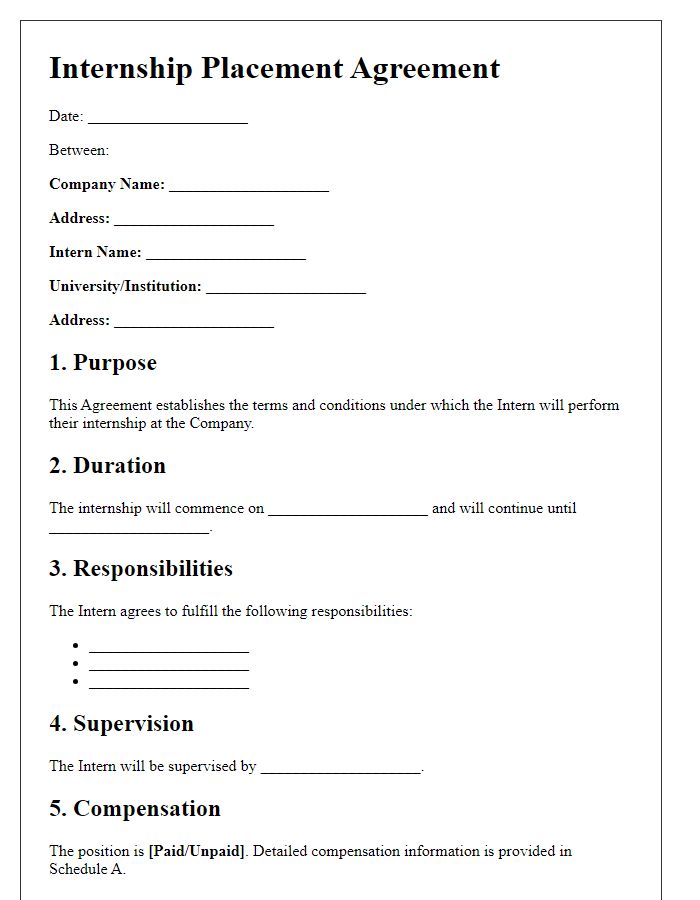
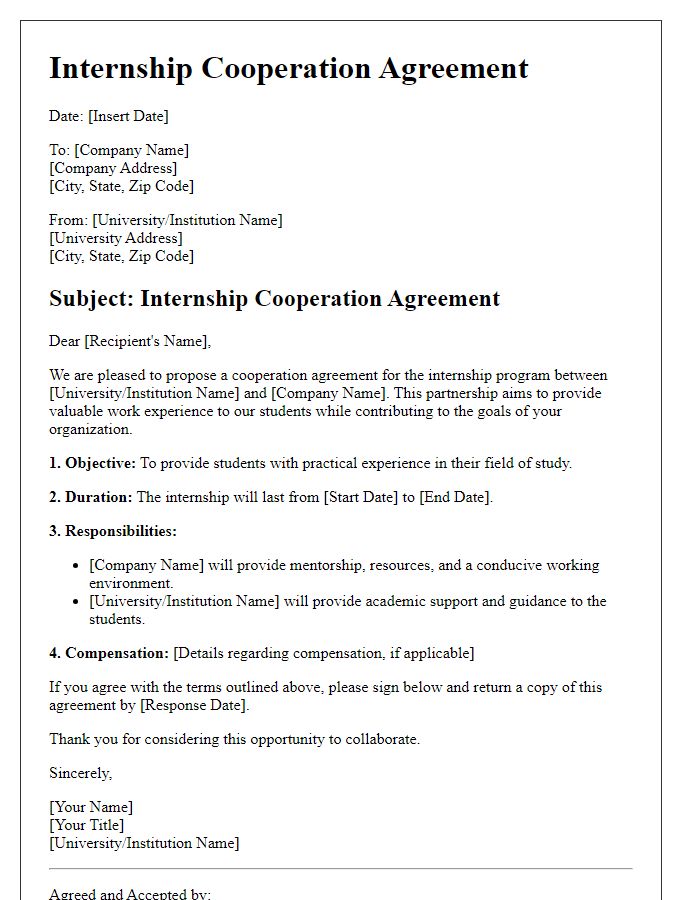
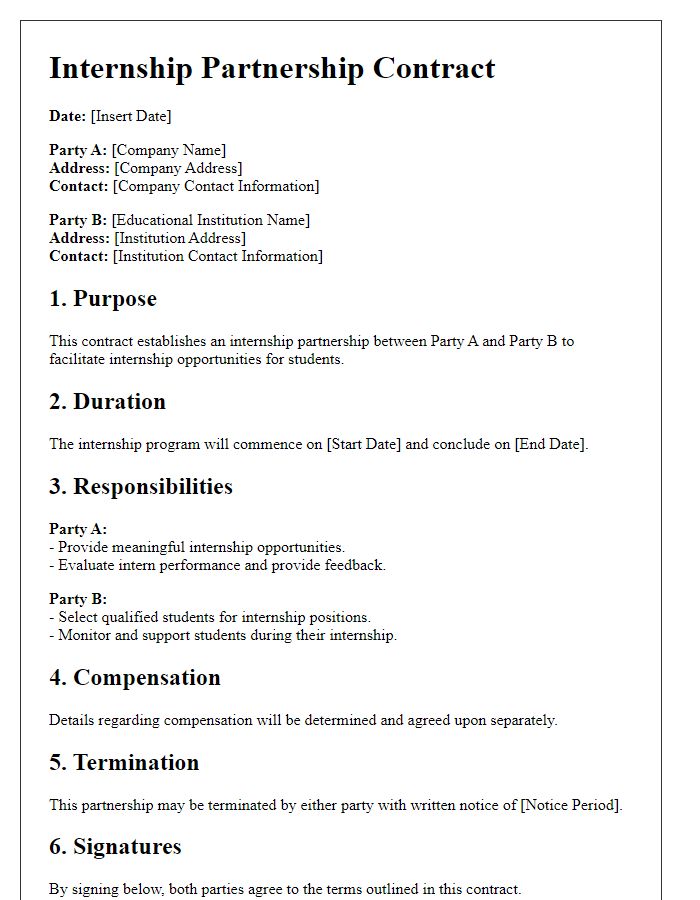
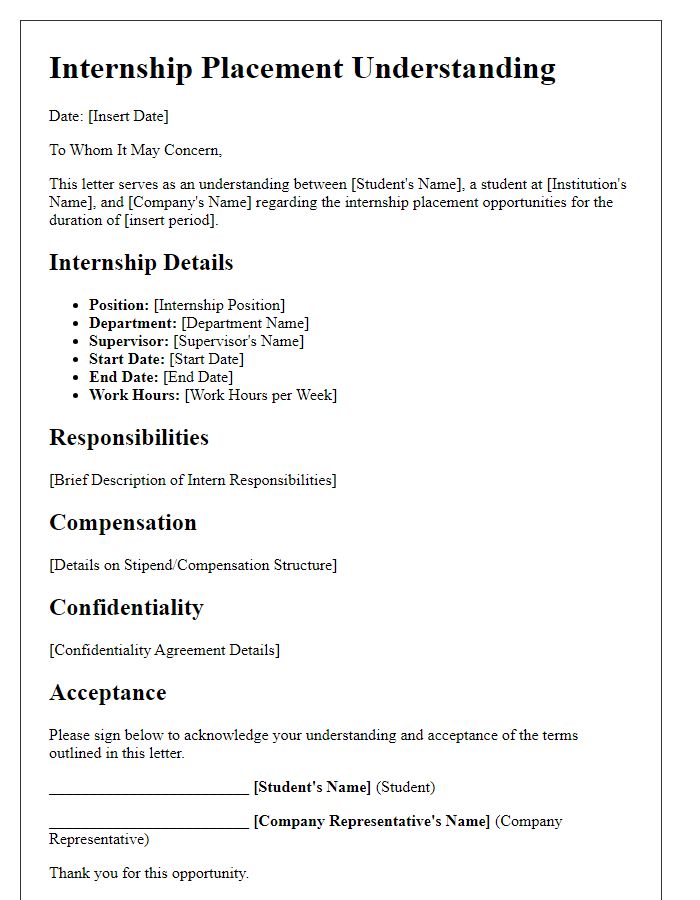
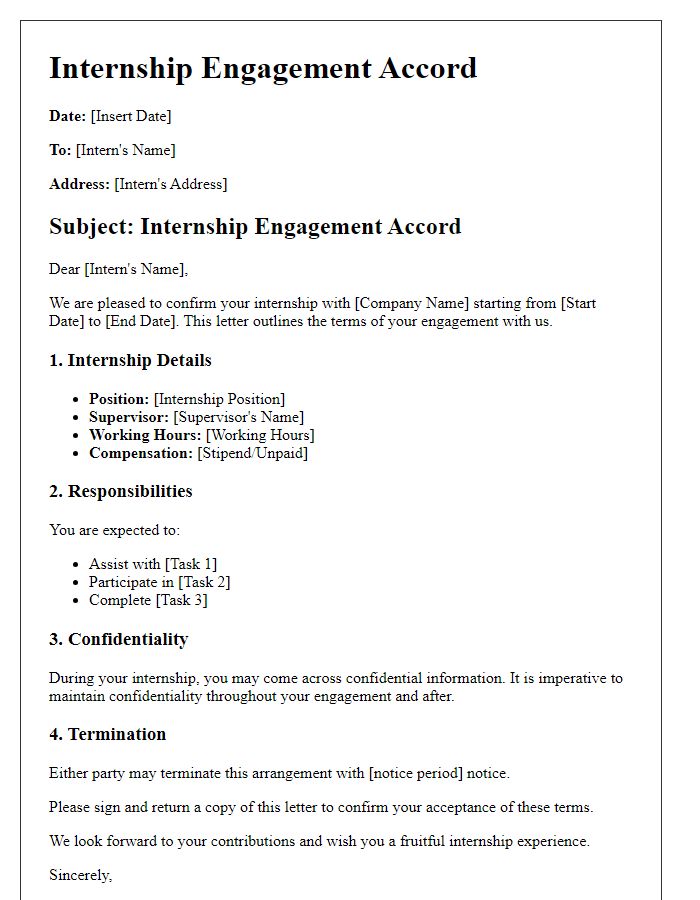
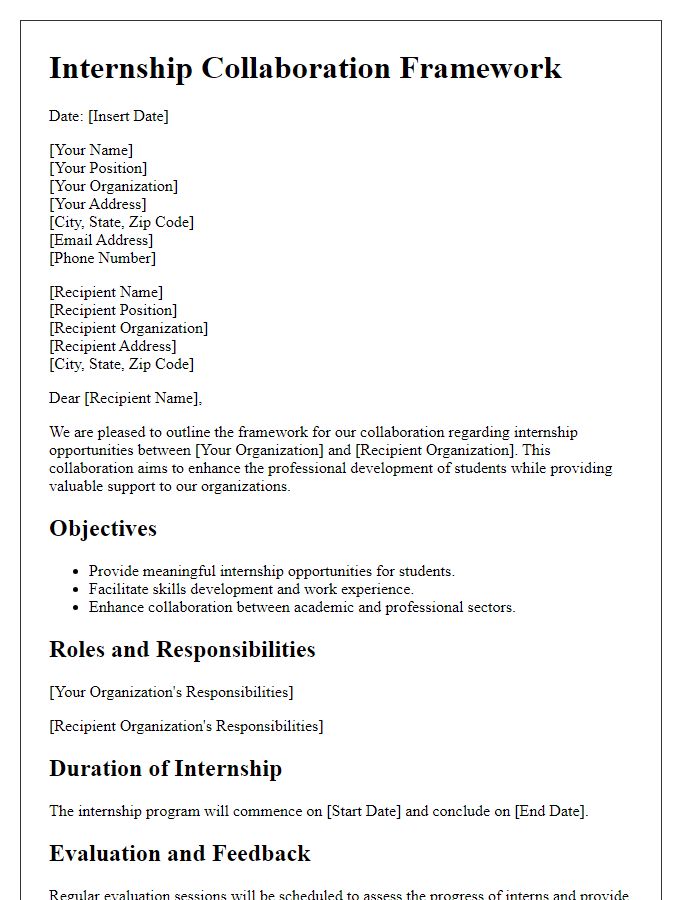
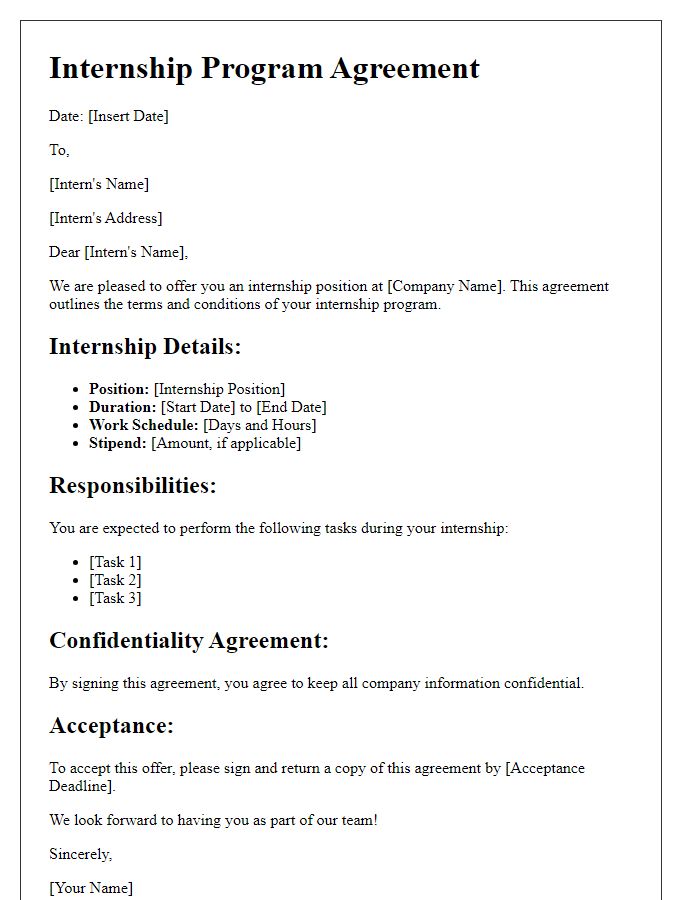
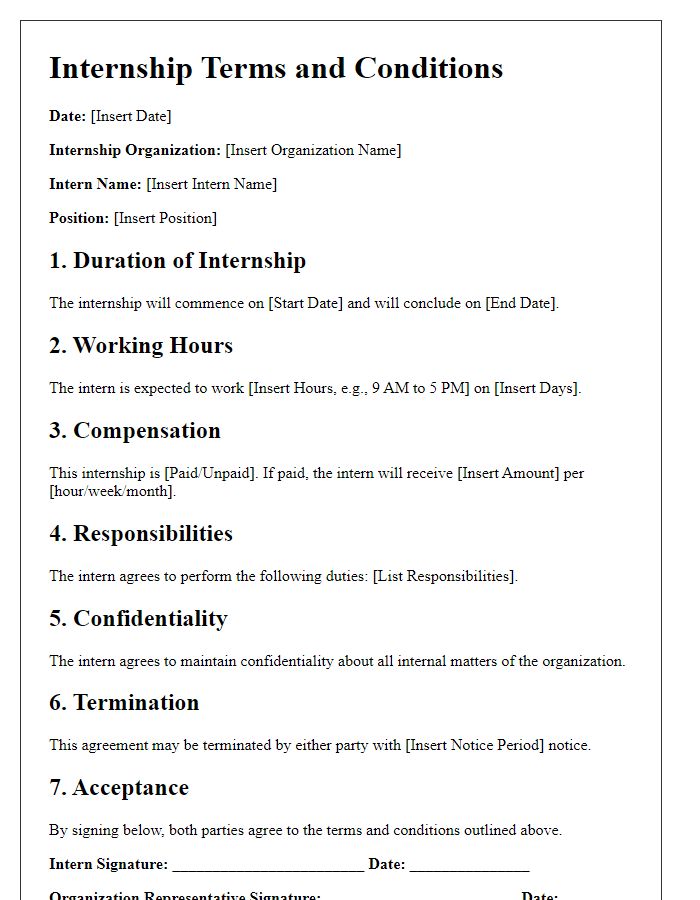
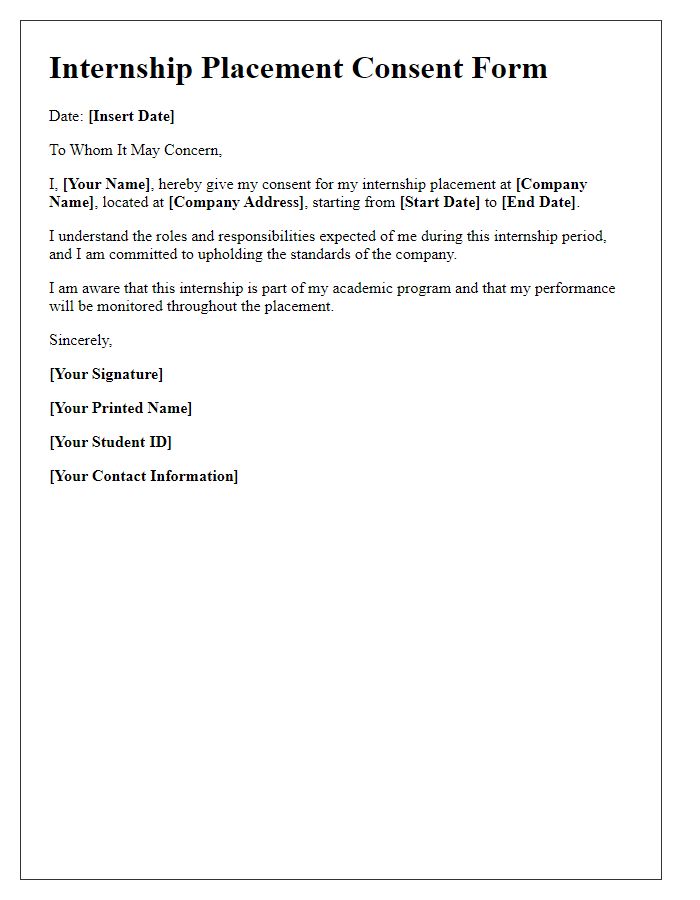
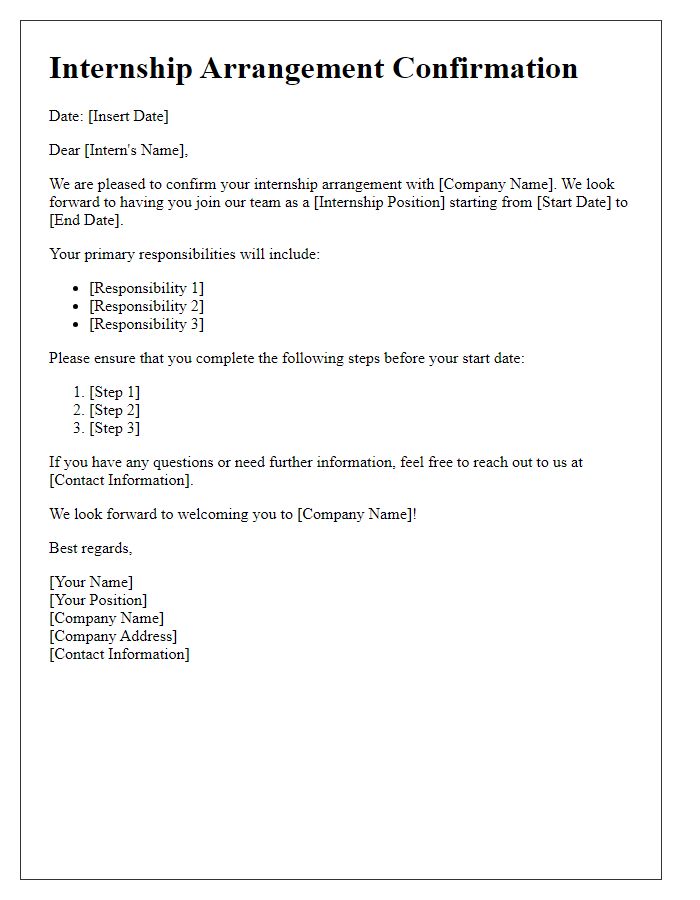


Comments